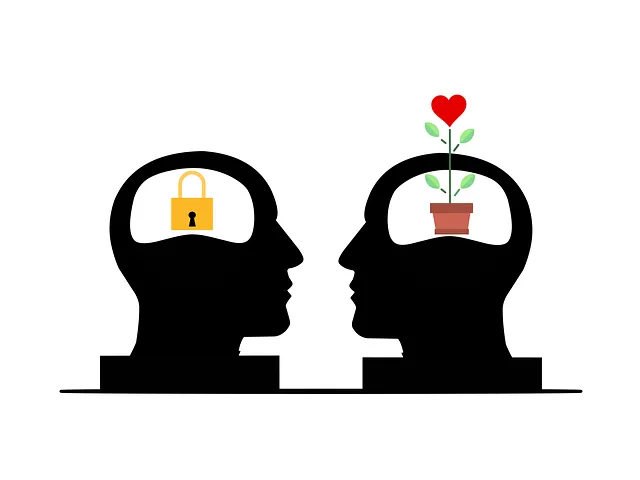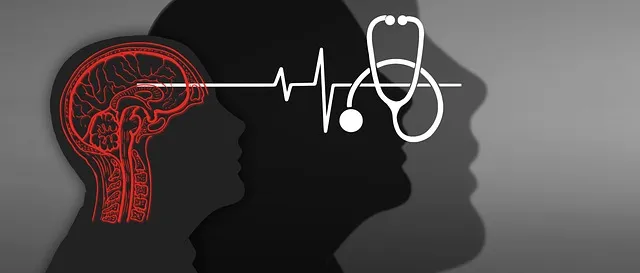Emotional intelligence (EI), highlighted by Westminster Kaiser Permanente's psychiatry reviews, is a vital skill set for effective communication and interpersonal connections in healthcare. It involves understanding and managing emotions, encompassing self-awareness, social awareness, self-management, relationship management, and empathy. This enhances crisis intervention skills, improves patient outcomes, and strengthens relationships between healthcare providers and communities. Westminster Kaiser Permanente integrates EI into its holistic patient care approach through workshops and podcasts, fostering a supportive environment and revolutionizing healthcare delivery by prioritizing mental wellness alongside physical health.
Emotional intelligence (EI) is a powerful tool for personal and professional growth, driving successful relationships and effective decision-making. This article explores the multifaceted concept of EI, delving into its core components: self-awareness and empathy. We examine the vital role that psychiatry plays in fostering EI development, drawing insights from Westminster Kaiser Permanente psychiatry reviews. Additionally, practical strategies are presented to help individuals enhance their EI at Westminster Kaiser Permanente and beyond.
- Understanding Emotional Intelligence: Unlocking the Power of Self-Awareness and Empathy
- The Role of Psychiatry in Fostering Emotional Intelligence Development
- Practical Strategies for Enhancing Emotional Intelligence at Westminster Kaiser Permanente
Understanding Emotional Intelligence: Unlocking the Power of Self-Awareness and Empathy

Emotional intelligence (EI) is a powerful concept that has gained significant traction in recent years, thanks to organizations like Westminster Kaiser Permanente highlighting its importance through their psychiatry reviews. At its core, EI revolves around understanding and managing one’s own emotions and empathizing with others’ feelings. This multifaceted skill set encompasses self-awareness, social awareness, self-management, relationship management, and empathy—all of which are crucial for effective communication and strong interpersonal connections.
By cultivating emotional intelligence, individuals can enhance their crisis intervention capabilities, as it enables them to respond sensitively in stressful situations. This is particularly relevant in healthcare settings where providers interact with patients from diverse backgrounds, requiring cultural competency training to ensure empathic and respectful care. The ability to recognize and respect others’ emotions fosters a supportive environment, leading to better patient outcomes and stronger relationships between healthcare providers and their communities.
The Role of Psychiatry in Fostering Emotional Intelligence Development

Psychiatry plays a pivotal role in fostering emotional intelligence development by addressing underlying mental health concerns that may hinder an individual’s ability to recognize and manage their emotions effectively. Westminster Kaiser Permanente psychiatry reviews highlight the importance of professional guidance in navigating complex emotional landscapes. Psychiatrists, armed with specialized knowledge and skills, offer tailored interventions to enhance self-awareness, empathy, and regulatory strategies crucial for Emotional Intelligence (EI).
Through personalized therapy sessions, these mental health experts help individuals cultivate healthy coping mechanisms, improve stress management skills, and foster better interpersonal relationships. By integrating insights from Psychiatry into EI development programs, organizations like the Stress Management Workshops Organization can create comprehensive strategies that promote Mental Health Awareness and equip individuals with the tools to lead more balanced and fulfilling lives.
Practical Strategies for Enhancing Emotional Intelligence at Westminster Kaiser Permanente

At Westminster Kaiser Permanente, a leading healthcare provider, there’s a growing emphasis on emotional intelligence (EI) as an essential component of holistic patient care. This shift is reflected in their Psychiatry Reviews and Mental Wellness Podcast Series Production, which highlight the importance of EI in both clinical settings and personal growth. The hospital recognizes that emotional intelligence empowers medical professionals to connect with patients on a deeper level, fostering trust and improving treatment outcomes.
Practical strategies for enhancing EI are integrated into the workplace culture. These include regular workshops focused on compassion cultivation practices and promoting positive thinking. Such initiatives not only benefit staff but also contribute to a supportive environment where patients feel understood and valued. By prioritizing emotional intelligence, Westminster Kaiser Permanente is revolutionizing healthcare delivery, ensuring that mental wellness is prioritized alongside physical health.
Emotional intelligence is a powerful tool for personal and professional growth, as evidenced by successful initiatives like those seen in the psychiatry department at Westminster Kaiser Permanente. By combining self-awareness and empathy, individuals can navigate complex social interactions more effectively. The strategies outlined in this article, backed by expert psychiatric insights, offer practical ways to enhance emotional intelligence in daily life. For those seeking guidance on improving mental health and interpersonal connections, exploring these methods, as showcased in the Westminster Kaiser Permanente psychiatry reviews, could be a transformative step forward.






